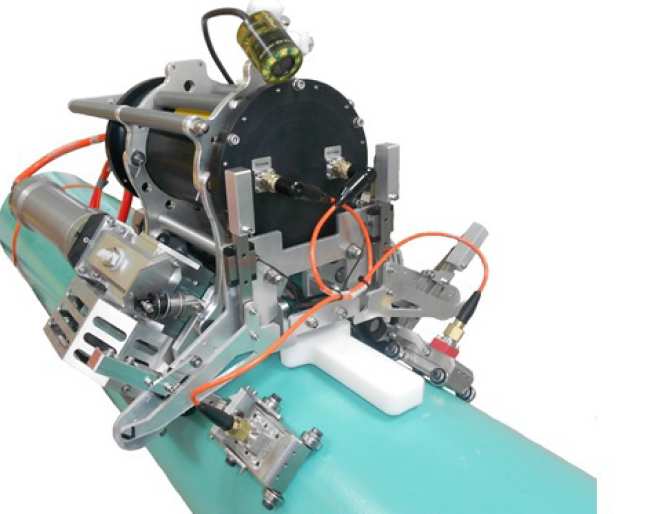Dr Matthew Fleming is senior integrity engineer at Sonomatic Ltd, an international inspection and integrity services company.
What did you learn during your time at Imperial, in class and out?
"In class, I learnt how to approach new problems and how to manage my time effectively. By publishing papers and completing my thesis I improved my writing skills. Giving talks at conferences also helped enhance my presentation skills.
Outside of class, I became quite a proficient baker, producing different muffins and biscuits most weeks of my PhD. I also became effective at organisation and management through my work at the university halls of residence."
Can you tell us about your studies at Imperial?
"I originally started at Imperial in 1999 in the maths department, specialising in applied subjects during my final years as an undergraduate. Following my graduation I started a PhD at the non-destructive testing laboratory in the mechanical engineering department. In 2008 I submitted the thesis entitled 'Far-field super resolution imaging'."
What is your fondest memory of your time here?
"I enjoyed working in the laboratory, it was interesting to be pushing the limits of research. The working environment meant that a vast amount of experience was available but we were still able to experiment. The lab also had a great spirit of cameraderie, I am still in contact with many of the friends that I made whilst working there."
Describe your career
"I have worked at Sonomatic Ltd since 2008 as integrity engineer and senior integrity engineer. Sonomatic Ltd is an international inspection and integrity services company, with offices in the UK, USA, South Africa, Australia and the Middle East. Operating mainly in the oil, gas and energy sectors, the company employs a variety of advanced inspection techniques in order to determine the integrity of various assets. Data is collected by technicians or using one of the fleet of automated scanners designed and built by Sonomatic.

As part of my job, I have developed a horizontally polarised shear electromagnetic acoustic transducer (SH-EMAT) system. This is a screening tool that allows rapid inspection of pipes, with the system flagging up any areas of concern which may require monitoring or repair. In a recent trial, the technique was used to inspect twenty four separate locations at a refinery. In comparison, the technique employed previously required four hours to inspect a single location. This system can be deployed both topside and subsea (at depths of up to 500 m). As this technique has been developed within Sonomatic, I have needed to develop a training program for technicians who will perform inspections in the field.
In order for an inspection to provide useful information, it must be capable of detecting defects of concern within the sample under consideration. For this reason, I create inspection simulations in order to validate proposed inspection techniques and in some cases to explain anomalies in completed inspections. These simulations allow us to explore various scenarios that could be difficult or impossible to investigate using manufactured samples.
Another aspect of my job is to design inspection strategies for various assets around the world. Following an inspection campaign, I will often have to analyse the data that has been collected to determine whether or not the integrity of the asset can be guaranteed.
My role also includes attending various conferences and talks on inspection technologies and integrity approaches, this allows us to keep up to date with the most recent developments."
How has what you learnt at Imperial helped you in your career so far?
"The research that I undertook is very closely related to the career that I have chosen, which I believe gave me an advantage in understanding various inspection techniques. However, I think the most important thing that I learnt from Imperial was how to approach a problem."
What have been your career highlights?
"Developing an inspection technique that I am proud of and demonstrating it around the world has been a definite career highlight."
What are your plans for the future?
"To further develop inspection techniques within the company and to successfully promote these around the world."
What would be your advice for current students?
"Imperial College is a superb university in one of the most diverse and exciting cities in the world. I would advise current students to take advantage of all of the resources that are available to them both academically and in London life. I would definitely recommend joining an extracurricular society that interests you and explore the city."
What’s the most difficult decision you’ve ever had to make?
"As I was leaving Imperial College, I had three job offers. Each of the jobs was in an interesting field related to the work that I completed during my PhD. Choosing which offer to accept was extremely difficult. I’m more than happy with the decision I made and I am still working for the same company."
What are you most proud of in your life?
"My PhD thesis, a lot of effort went into writing my thesis and I was pleased with the final result. Overall, I feel that the process of completing my thesis had an extremely beneficial effect on my writing."
Do you have a favourite quote or saying?
“'To thine own self be true' – Polonius, (Hamlet Act 2, Scene 2)"